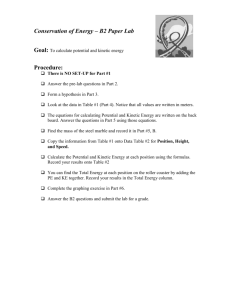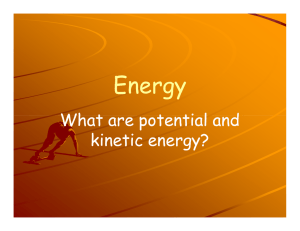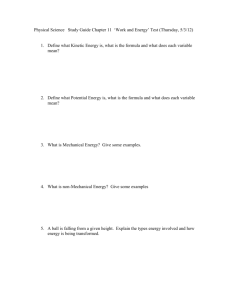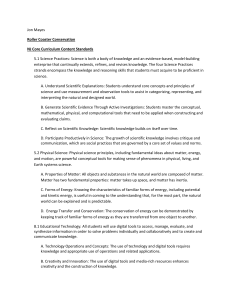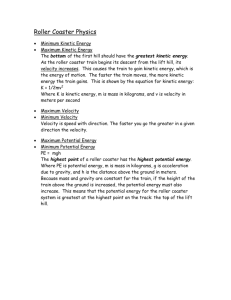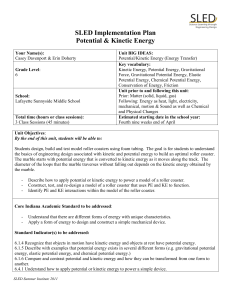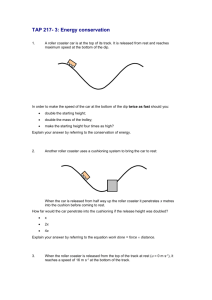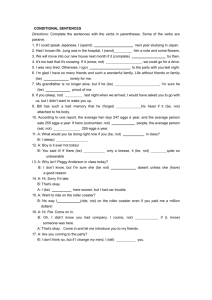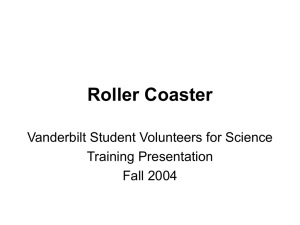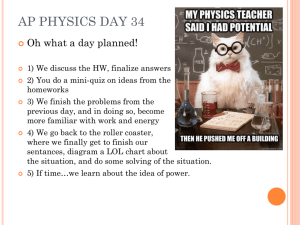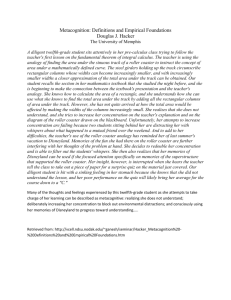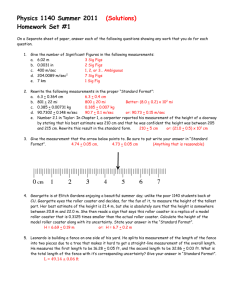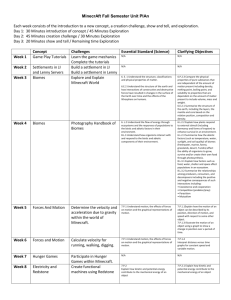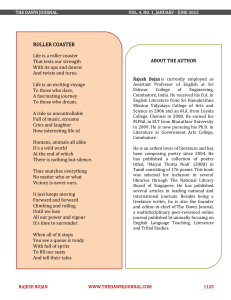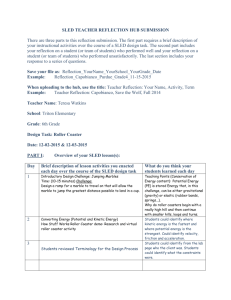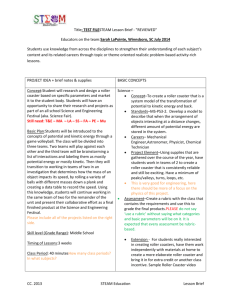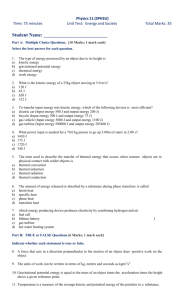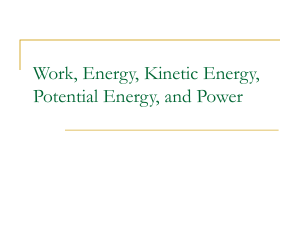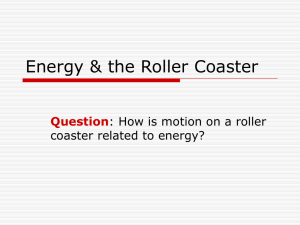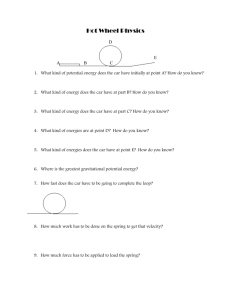Roller Coaster Marbles: How Much Height to Loop the Loop?
advertisement
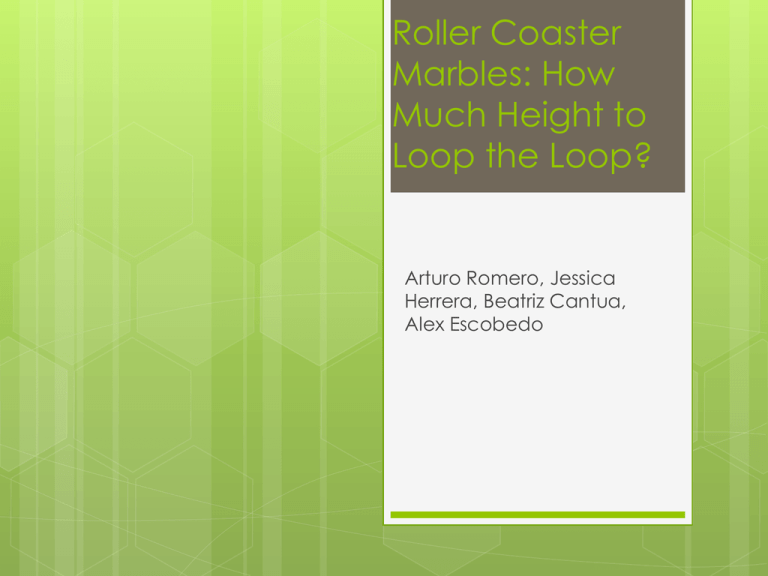
Roller Coaster Marbles: How Much Height to Loop the Loop? Arturo Romero, Jessica Herrera, Beatriz Cantua, Alex Escobedo Objective The goal of this project is to build a roller coaster for marbles using foam pipe insulation and to investigate how much height is needed in order for the marble to run through a loop of fixed size. Materials At least two 6 foot (183 cm) sections of 11/2 in (about 4 cm) diameter foam pipe insulation Glass marbles Utility knife Masking tape Tape measure Bookshelf, table, or other support for roller coaster starting point Diagram Theory & Concepts Potential Energy (stored energy)-the energy possessed by a body by virtue of its position relative to others, stresses within itself, electric charge, and other factors. Kinetic Energy (energy of motion)-energy that a body possesses by virtue of being in motion. Conservation of energy-a principle stating that energy cannot be created or destroyed, but can be altered from one form to another. Gravity-the force that attracts a body toward the center of the earth, or toward any other physical body having mass. For most purposes Newton's laws of gravity apply, with minor modifications to take the general theory of relativity into account. Velocity-the speed of something in a given direction. Friction-the resistance that one surface or object encounters when moving over another. Slope-the height of a given point from horizontal surface Observation Table Conclusion The conclusion is that the higher we drop the marble, the more loops it will make at the end. Source of Error Whenever we didn’t drop the marble from a high distance, it did not loop the loop. The track also had to be straight in order to flow smoothly Questions How high do you have to make the starting point of your roller coaster in order for the marble to "loop-the-loop"? Bibliography Here's a good webpage on kinetic and potential energy applied to roller coasters: Merritt, T., M. Lee and B. Colloran, 1996. "The Physics of Amusement Parks: Kinetic and Potential Energy," ThinkQuest Library [accessed August 23, 2007] http://library.thinkquest.org/2745/data/ke.htm. This short animation explains kinetic energy and potential energy: Brain POP, date unknown. "Kinetic Energy," Brain POP® Animated Educational Site for Kids [accessed August 23, 2007] http://www.brainpop.com/science/energy/kineticenergy/. Here is a good reference for more advanced students: Henderson, T., 2004. "Work, Energy, and Power," The Physics Classroom and Mathsoft Engineering & Education, Inc. [accessed August 23, 2007] http://www.physicsclassroom.com/Class/energy/u5l1c.html.
